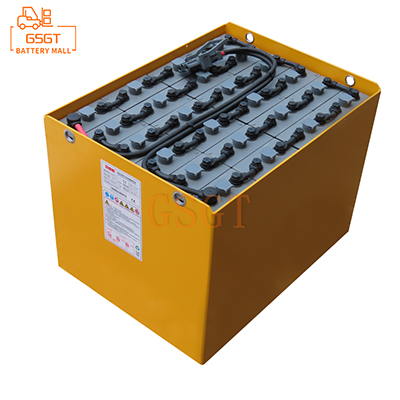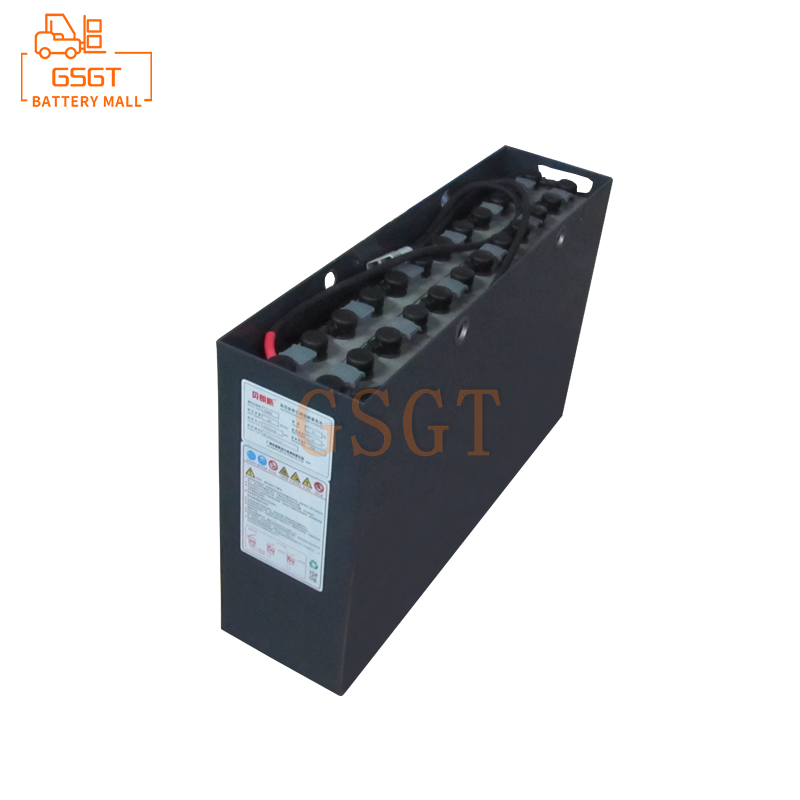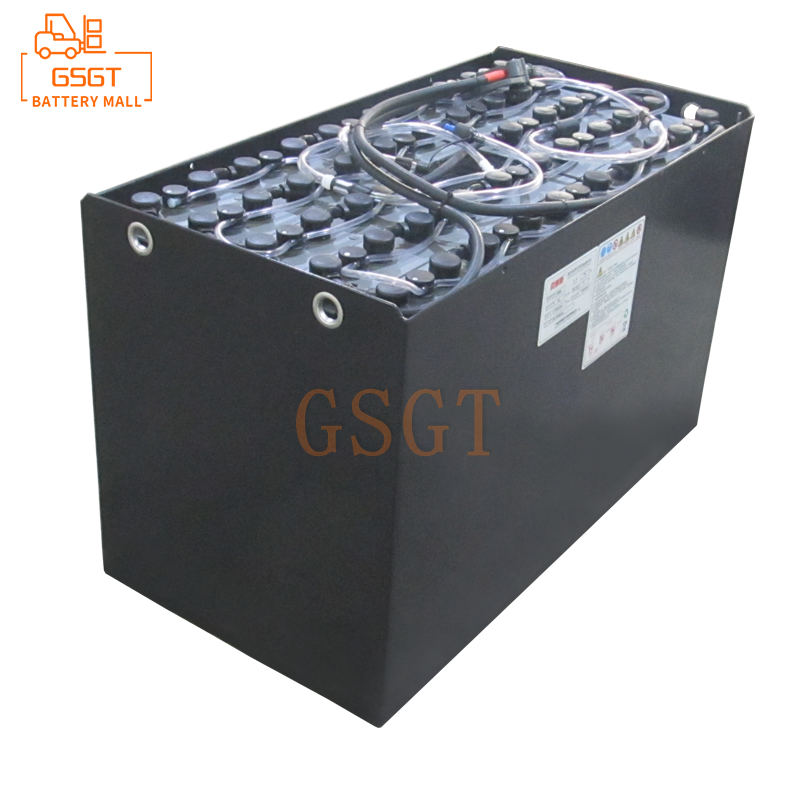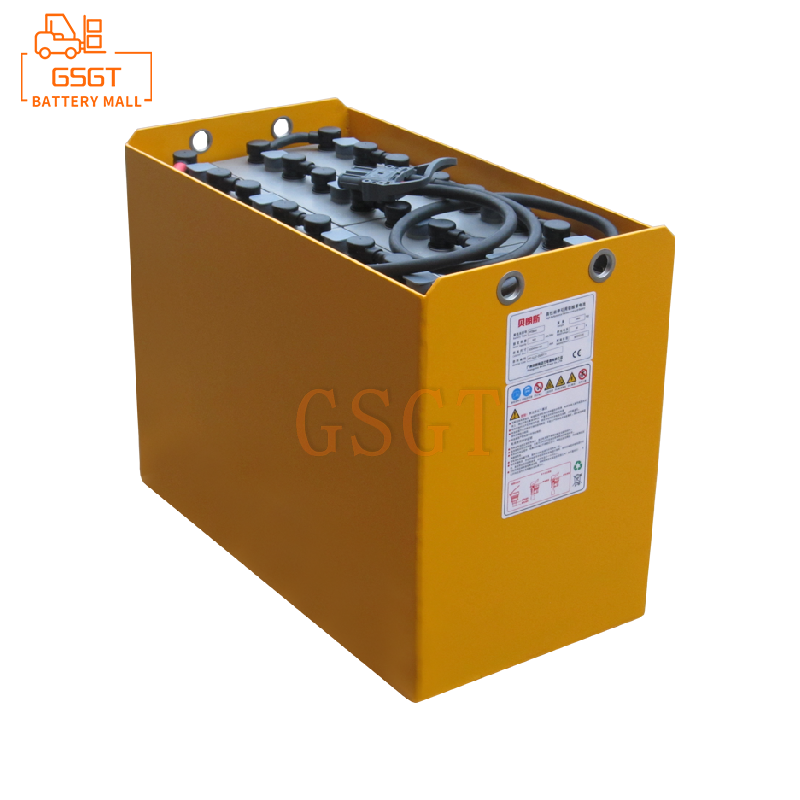Time:2025-06-11 16:05:26
Browse:680
In the fields of modern logistics and industrial production, forklifts, as important material handling equipment, their performance directly affects operational efficiency and enterprise operating costs. Among the numerous components of forklifts, lead-acid batteries play an extremely crucial role and have a profound impact on the various performances of forklifts.
The influence of lead-acid batteries on the power performance of forklifts
Startup performance
At the moment of starting, a forklift requires a large current to drive the motor, enabling the vehicle to quickly transition from a stationary state to a running state. The internal resistance characteristics and the ability to discharge large instantaneous currents of lead-acid batteries play a decisive role in the starting performance of forklifts. High-quality lead-acid batteries have low internal resistance and can release a powerful current in a short time, enabling forklifts to start quickly and smoothly, reducing start-up time and improving operational efficiency. For instance, in a logistics warehouse, forklifts need to start and stop frequently to move goods. Good starting performance can ensure that forklifts can respond quickly to operation instructions, avoiding time waste caused by slow starting.
Continuous operation capability
The continuous operation capacity of a forklift mainly depends on the capacity of the lead-acid battery. The larger the battery capacity is, the more electrical energy it can store, and the longer the forklift can work continuously after a single charge. For some forklift application scenarios that require continuous operation for long periods of time, such as cargo loading and unloading in large ports and cargo transfer in large logistics parks, high-capacity lead-acid batteries can reduce the charging frequency of forklifts, ensuring their continuous and efficient operation, avoiding operation interruptions caused by frequent charging, and significantly improving the continuity and overall efficiency of operations.
Power output stability
During the operation of a forklift, whether it is the lifting and lowering of goods or the movement of the vehicle, a stable power output is required. During the discharge process, lead-acid batteries can maintain a relatively stable voltage output, providing a stable power supply for the forklift motor and enabling the forklift to maintain a smooth power performance under various working conditions. This stability is crucial for forklifts to precisely control the handling operations of goods. For instance, when accurately placing goods at specific positions on the shelves, a stable power output can ensure the forklift's movements are precise and smooth, preventing inaccurate placement of goods or even safety accidents such as drops due to power fluctuations.
The influence of lead-acid batteries on the operational performance of forklifts
Control responsiveness
Lead-acid batteries closely cooperate with the electrical control system of forklifts, and their performance directly affects the control response speed of forklifts. When the driver operates various control handles of the forklift, such as forward, backward, lifting and lowering operations, the battery needs to quickly supply power to the corresponding motor, enabling the forklift to respond quickly to the driver's instructions. If the battery performance is poor, for instance, it has problems such as aging and increased internal resistance, it will lead to poor power transmission, thereby making the forklift's control response sluggish and affecting the operational efficiency and accuracy.
Braking performance
Although the braking system of a forklift is mainly composed of mechanical and hydraulic components, lead-acid batteries also play a certain role in it. In some electric forklifts, regenerative braking technology is adopted. That is, during the braking process of the forklift, the motor is transformed into a generator, converting the kinetic energy of the forklift into electrical energy and feeding it back to the battery for storage. This can not only recover part of the energy and extend the battery's service life, but also assist the mechanical braking system and enhance the braking effect of the forklift. A well-performing lead-acid battery can efficiently receive and store the electrical energy generated during regenerative braking, ensuring the normal operation of the regenerative braking system and thereby enhancing the overall braking performance and safety of the forklift.
The influence of lead-acid batteries on the service life of forklifts
Charge and discharge cycle life
The charge and discharge cycle life of lead-acid batteries is an important indicator for measuring their service life. Under normal usage conditions, after a certain number of charge and discharge cycles, the capacity of lead-acid batteries will gradually decrease. When the capacity drops to a certain extent, the battery can no longer meet the normal usage requirements of forklifts and needs to be replaced. The usage frequency and working conditions of forklifts have a significant impact on the charge and discharge cycle life of batteries. For instance, frequent deep discharges will accelerate the sulfation of battery plates and shorten the battery's cycle life. Operating in a high-temperature environment will also intensify the chemical reactions inside the battery, leading to accelerated battery aging. Therefore, the rational use and maintenance of lead-acid batteries, controlling the depth of charging and discharging, and avoiding the influence of harsh environments such as high temperatures on the batteries are of vital importance for extending the battery's service life and reducing the operating costs of forklifts.
The impact on other components of the forklift
The performance status of lead-acid batteries can also indirectly affect the service life of other components of forklifts. When the battery output voltage is unstable or the current is too large or too small and other abnormal conditions occur, it may cause damage to the electrical components such as the motor and controller of the forklift, shortening the service life of these components. For instance, excessively high voltage may damage the insulation of the motor windings, while too low a current may lead to insufficient output power of the motor. Operating under such abnormal conditions for a long time, the wear of the motor will intensify, and the frequency of maintenance and replacement will increase. In addition, issues such as the leakage of battery electrolyte may also corrode the metal structural components of forklifts, affecting the overall structural strength and safety of the forklifts.
Maintenance of lead-acid batteries and performance Assurance of forklifts
Key points of daily inspection and maintenance
To ensure that lead-acid batteries are always in good working condition and guarantee the performance of forklifts, strict daily inspections and maintenance are required. First of all, it is necessary to regularly check the liquid level height of the electrolyte to ensure that it is within the normal range. If the liquid level is too low, it will cause the plates to be exposed to the air, accelerate the sulfation of the plates and reduce the performance of the battery. Secondly, it is necessary to check the density of the electrolyte. The change in density can be used to determine the charging status and health condition of the battery. The density of the electrolyte needs to be appropriately adjusted in different seasons and usage environments. In addition, the appearance of the battery should be inspected to see if there are any cracked shells, leakage or other issues, as well as whether the electrode terminals are loose or corroded. Any problems found should be dealt with promptly.
Correct charging operation
Correct charging operation is crucial for extending the service life of lead-acid batteries and maintaining the performance of forklifts. Before charging, make sure the charger matches the battery. Avoid using an incompatible charger to prevent damage to the battery. During the charging process, operations should be carried out strictly in accordance with the charging current, voltage and time specified by the battery manufacturer to avoid overcharging or undercharging. Overcharging can cause the battery to heat up, accelerate the evaporation of the electrolyte and the aging of the plates. Undercharging will prevent the battery capacity from being fully restored. Long-term undercharging will cause sulfation of the battery plates, reducing the battery's lifespan. At the same time, pay attention to the temperature of the charging environment and try to charge within an appropriate temperature range. Both high and low temperature environments will have adverse effects on the charging effect and battery life.
Conclusion
In conclusion, lead-acid batteries play a core role in the operation of forklifts. They have an undeniable and crucial impact on forklifts in multiple aspects, including power performance, operational performance, and service life. Understanding the working principle, performance characteristics and correct maintenance methods of lead-acid batteries is an important prerequisite for forklift users, managers and practitioners in related industries to ensure the efficient and stable operation of forklifts, reduce operating costs and improve production efficiency. With the continuous advancement of technology, although new battery technologies are constantly emerging, at the current stage, lead-acid batteries still hold an important position in the forklift field due to their advantages such as mature technology, relatively low cost and high safety. Through reasonable selection, scientific use and meticulous maintenance of lead-acid batteries, their performance advantages can be fully exerted, providing a solid guarantee for the reliable operation of forklifts and contributing to the continuous development of industries such as logistics and industrial production.

$3405

$1060

$3050

$1690

MESSAGE
Professional And Efficient
Security
Affordable Price
Professional Services